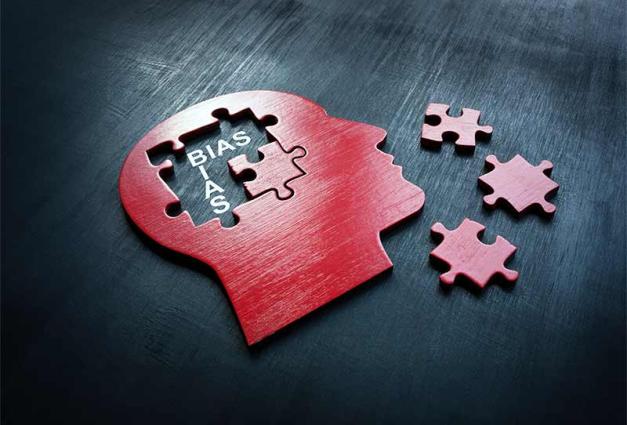In the mid-1800s, three brothers named Currer, Ellis, and Acton Bell began publishing novels. Their books are still household names and have since been made into countless movies. Despite this, many people have never heard of the Bell brothers. This is because they never existed. In fact, Currer, Ellis, and Acton were the pseudonyms used by the Brontё sisters, names they wrote under when they published such famous works as Wuthering Heights, Jane Eyre, and Agnes Grey.
In the past, many women have felt the need to write under male names. What is perhaps surprising is that this practice still occurs today. Why would female authors feel like their writing will be judged more favorably if it is attributed to a man? And is it a true belief? This is precisely the question we wanted to ask: Do people judge fiction more harshly when they think the author was a woman?
To investigate, we gave participants four short book passages with no genre identified, with two ostensibly written by men and two by women, which we manipulated using names and short biographies, which also identified them as an author (such as Helen versus Henry). After reading each passage we asked participants if they had read it before and if they reported they had we removed them from analysis. Importantly, participants had no idea we were looking at gender differences, allowing us to get their honest opinions. To ensure participants didn't know the true purpose of our study, as a last question, we asked them to tell us what they thought the study was about and removed anyone who guessed correctly. After reading, they evaluated each of the passages answering questions such as 'I thought this passage was well written' and 'I would be interested in reading more by this author.' Perhaps surprisingly, we found substantial evidence to support the idea that people don't differ at all in how they evaluate texts based on whether they think the author is male or female.
Next, we extended our study to examine romance novels. Romance readers are overwhelmingly women, as are the authors. It is one of the most popular genres of fiction, but it is often criticized as being "trashy" and even mocked as being of poor quality. These negative opinions are even held by many who read romance! To examine whether readers judging excerpts would show a bias based on genre, we repeated the first study but this time participants were told at the beginning of the study that all the passages they were going to read would be from either romance novels or works of literary fiction. The ostensible gender of the author was varied, as before. Once again, we found strong evidence that people don't evaluate passages differently based on their assigned genre or author gender.
Is This Good News for Women Authors?
If readers don't judge passages differently based on genre or author gender, why do some women still feel the need to publish under male names (for example, J.K. Rowling)? One possibility is that a bias does exist, just not on the part of readers (and this was true for both male and female participants, with no gender differences found). It could be that publishers think people prefer books written by men, thus creating a gender bias among those who decide what gets published (and how much authors get paid). There is anecdotal evidence to support this idea. One female author reported that she was 8 times more likely to get a response to her novel submissions when she used a male name compared to her actual one. Books written by women are also sold for less money than books written by men, on average. This seems consistent with a bias by publishers. Similar effects are seen when people 'whiten' their resume. Research has shown that racial minorities are more likely to get an interview when they change the name on their resume to be more "white."
Another possibility is that readers do hold a bias, just not when judging excerpts of text in a psychology study. Perhaps they would be a harsher judge of a book in real life, based on the genre or author's gender, when reading it or perhaps only looking at the cover or reading the synopsis on the back.
Regarding romance novels, their lowly position in mainstream culture may stem from misogyny, even if this doesn't alter judgments based on reading passages. A parallel can be seen in reality TV, which is marketed to women and is incredibly popular, yet is rated as the least favorable genre. This raises the question of why media that is targeted to women are so popular, but also typically viewed so negatively.
What our research shows is that the bias against works written by and for women doesn't seem to influence reader judgments of specific passages. But a great deal more research still needs to be done to understand what's behind the phenomenon of books by women being valued lower than books by men, and why a Charlotte, Emily, and Anne may have more success when they become Currer, Ellis, and Acton.
For Further Reading
Ivanski, C., Humphries, S., van Dalen-Oskam, K., & Mar, R. A. (2022). Do we judge fiction by the author's gender? Journal of Media Psychology: Theories, Methods, and Applications, 34(5), 299–312. https://doi.org/10.1027/1864-1105/a000319
Weinberg, D. B., & Kapelner, A. (2018). Comparing gender discrimination and inequality in indie and traditional publishing. PLoS One, 13(4), 1–20. https://doi.org/10.1371/journal.pone.
0195298
Chantelle Ivanski is a PhD Candidate in the Department of Psychology at York University in Toronto Canada. Her research interests are in feminist psychology and the experiences of women as well as people who experience regret around becoming a parent, with a particular interest in mothers.




